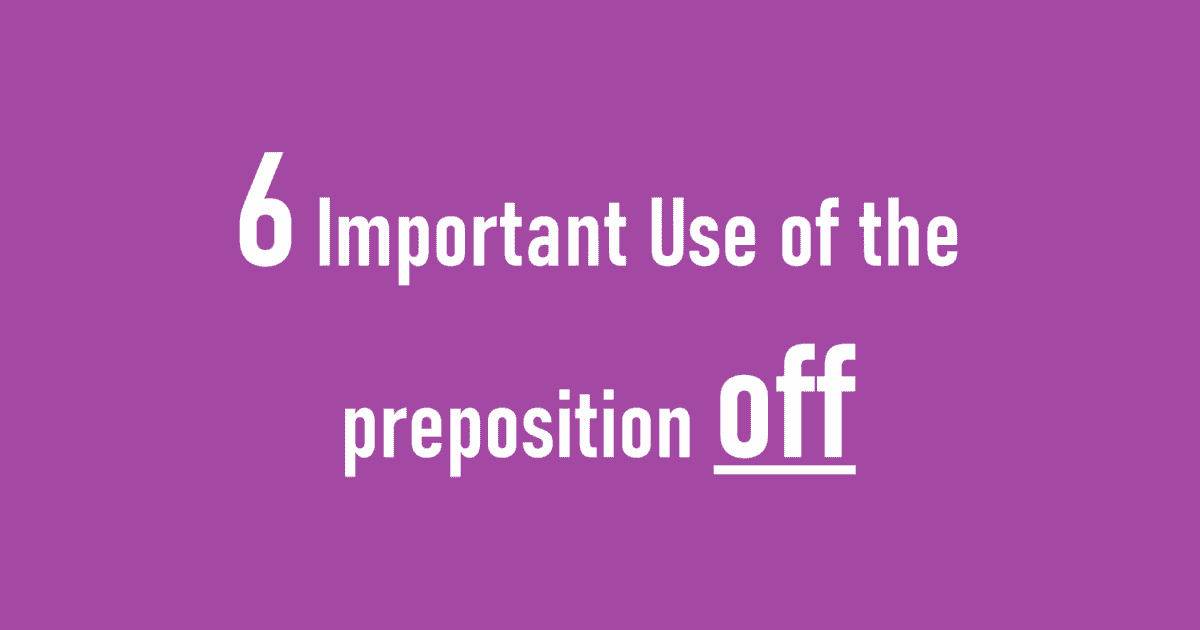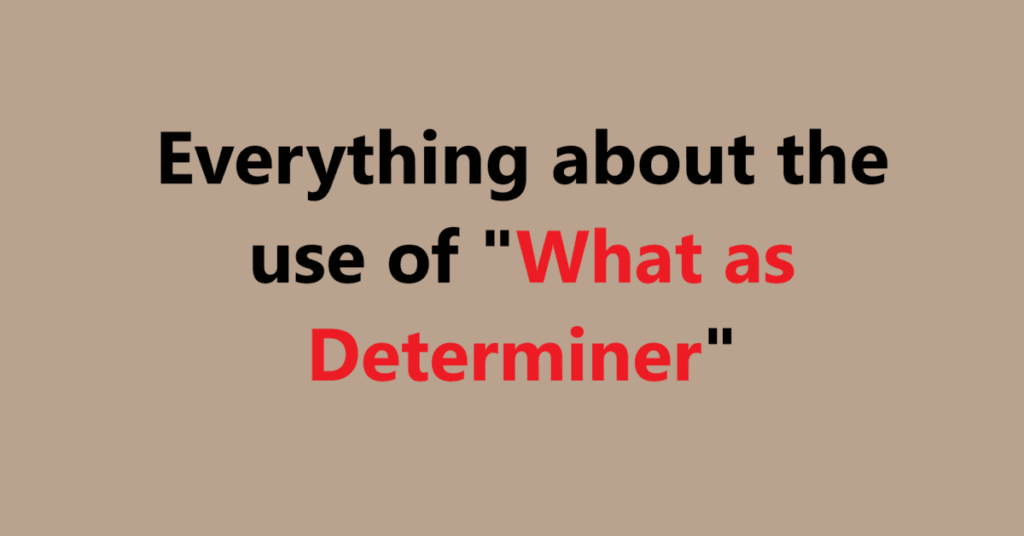Use of the preposition off. The preposition “off” is deceptively simple. While its core meaning might seem straightforward – indicating a separation or removal from a surface or location – its actual usage is far more nuanced and complex. It’s a workhorse of the English language, capable of conveying a multitude of relationships between objects, actions, and concepts. Understanding the different ways “off” is used is crucial for both native and non-native speakers who want to master the subtleties of English grammar.
This comprehensive guide delves into the diverse functions of “off,” providing clear explanations, examples, and tips to help you navigate its complexities. We’ll explore its use in expressing physical separation, direction, origin, cessation, dependence, and even some idiomatic expressions. Buckle up, because we’re about to embark on a linguistic journey to uncover the many faces of “off.”
Use of the preposition off
1. Off as an Indicator of Physical Separation or Removal:
This is arguably the most fundamental use of “off.” It signifies a detachment or distance from a surface, object, or place.
- From a Surface: This is the most common association people have with “off.” It indicates something being moved or displaced from a surface.
- Example: “He took the book off the shelf.” (The book was previously on the shelf, but is now removed.)
- Example: “Please wipe the crumbs off the table.” (The crumbs need to be separated from the table’s surface.)
- Example: “The painting fell off the wall.” (The painting was attached to the wall but became detached and fell.)
- From a Person: “Off” can also express a removal or distancing from a person.
- Example: “Get your hands off me!” (Remove your hands from my person.)
- Example: “He shook the dust off his coat.” (He removed the dust from the surface of his coat.)
- From an Object: Similar to surfaces, “off” indicates detachment from a physical object.
- Example: “She pried the lid off the jar.” (The lid was attached to the jar but was removed.)
- Example: “Take the cap off the bottle.” (Remove the cap that is covering the bottle’s opening.)
2. Off Indicating Direction or Departure:
In this context, “off” signals movement away from a specific point or towards a different location. It implies a separation and a subsequent trajectory.
- Moving Away From a Location: This usage emphasizes the starting point of a journey or movement.
- Example: “They drove off towards the mountains.” (They started their journey from the current location, heading towards the mountains.)
- Example: “The plane took off on time.” (The plane departed from the runway.)
- Example: “He walked off in a huff.” (He walked away from the current location, displaying anger.)
- Going Away Temporarily: “Off” can also suggest a temporary departure, often for a break or vacation.
- Example: “She’s off on vacation next week.” (She will be away from work on vacation.)
- Example: “He’s off to the store to buy milk.” (He is going to the store and will return later.)
3. Off Indicating Origin or Source:
This application of “off” is often used to describe where something originated or was obtained. It highlights the source of an item or piece of information.
- Origin of Food or Products: Often used with descriptions of where something came from.
- Example: “I bought this shirt off the internet.” (I purchased the shirt through an online platform.)
- Example: “We get our vegetables off the local farm.” (We obtain our vegetables from the local farm.)
- Source of Information: This usage indicates where information or inspiration came from.
- Example: “I got the idea off a blog post.” (The idea originated from reading a blog post.)
- Example: “He based his argument off the professor’s research.” (His argument was based on the professor’s research findings.)
4. Off Signifying Cessation or Interruption:
In this case, “off” indicates the end of an activity, a state, or a period of time. It signifies a stopping or discontinuing of something.
- Turning Something Off: This is a common usage referring to deactivating a device.
- Example: “Please turn off the lights when you leave.” (Deactivate the lights.)
- Example: “The power went off during the storm.” (The electricity supply stopped functioning.)
- Example: “Don’t forget to turn off the stove after cooking.” (Ensure the stove is deactivated after use.)
- Taking Time Off: Signifies a period of rest or absence from work or other activities.
- Example: “I’m taking a day off work to relax.” (I will be absent from work for a day to rest.)
- Example: “She needs to take some time off to recover from her illness.” (She requires a period of rest to regain her health.)
- Discontinuing Something: Implies a complete stop to an activity or state.
- Example: “He went off drinking for good.” (He completely stopped drinking alcohol.)
- Example: “The project was called off due to lack of funding.” (The project was discontinued because of insufficient funding.)
5. Off Indicating Dependence or Reliance:
This usage can be a bit trickier, as it often appears in phrases and idioms. It suggests a reliance on something for support or success.
- Living Off Something: Signifies relying on something for sustenance or income.
- Example: “He’s living off his savings.” (He is using his savings to support himself.)
- Example: “They live off the land.” (They obtain their food and resources directly from the land.)
- Running Off Something: Implies that something is powered or operated by a particular source.
- Example: “The generator runs off diesel fuel.” (The generator is powered by diesel fuel.)
- Example: “The city’s infrastructure runs off renewable energy sources.” (The city’s infrastructure is powered by renewable energy sources.)
6. Common Idiomatic Uses of “Off”:
Beyond the core meanings, “off” frequently appears in idiomatic expressions, where its meaning is not always immediately obvious. Understanding these idioms is crucial for fluent communication.
- Off the Record: (Information that is not officially recorded or made public.)
- Example: “This is strictly off the record, but the company is planning layoffs.”
- Off the Hook: (Released from a difficult situation or obligation.)
- Example: “He was off the hook when his alibi checked out.”
- Off the Cuff: (Spoken or done without preparation.)
- Example: “He gave an off the cuff speech that was surprisingly moving.”
- Off Color: (Slightly ill or unwell; also can refer to a joke that is slightly inappropriate)
- Example: “He seems a little off-color today, I hope he isn’t getting sick.”
- Example: “The comedian’s off-color jokes made some audience members uncomfortable.”
- Off Base: (Incorrect or mistaken.)
- Example: “Your assumptions about the situation are completely off base.”
- Off Limits: (Forbidden or prohibited.)
- Example: “The construction site is off limits to the public.”
Tips for Mastering the Use of “Off”:
- Context is Key: As with many prepositions, the meaning of “off” is highly dependent on the surrounding context. Pay attention to the words around it to understand its intended meaning.
- Consider the Relationship: Think about the relationship being expressed between the objects, actions, or concepts involved. Is it a separation, a direction, an origin, or something else?
- Pay Attention to Collocations: Certain words and phrases frequently appear with “off.” Familiarize yourself with these collocations to improve your fluency.
- Practice Makes Perfect: The best way to master the use of “off” is through practice. Read widely, listen to native speakers, and try using “off” in your own writing and speaking.
- Use a Dictionary: Don’t hesitate to consult a dictionary for specific examples and definitions, especially when dealing with idiomatic expressions.
Conclusion:
The preposition “off” is far more than just a word indicating separation. It’s a versatile and nuanced tool that allows us to express a wide range of relationships in the English language. By understanding its core meanings, recognizing its idiomatic uses, and practicing its application, you can significantly improve your comprehension and fluency. So, the next time you encounter “off,” take a moment to appreciate its complexity and power. You might just find yourself “off” to a better understanding of English!
Read Also,
- Learn all prepositions
- Use of the preposition above
- Use of the preposition about
- What is Religion
- News in Hindi
- Human vs AI
- Very Important Word Lists
>>> Sir Sahil

